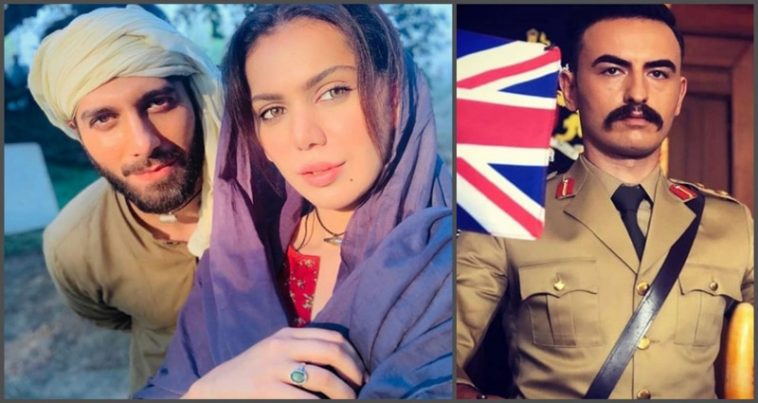“Gawah Rehna” which has ostensibly wrapped up shooting, is a film centering on the Khilafat Movement. The film, directed by Tahir Mehmood, is a recounting of a pivotal movement in history that many consider to have built steam for the eventual independence of Pakistan. PakistaniCinema.Net interviewed Director Tahir Mehmood about the film and his attachment to the subject matter.
PC: What made you look at the Khilafat Movement? Has it been a point of interest for you for some time, or was it a more recent interest?
Tahir: I had been working for the Pakistani foreign service for some time in Turkey and I discovered this reverence the local people have for the movement. They consider it a landmark in their history when the Muslims of the subcontinent came together as a rallying cry to all Muslims. Though I’ve been aware of this movement for a long time, it was this love from Turkey that motivated me to make a film about this subject.
So I got to writing and spent years on refining and perfecting every facet of the script. I remember when I gave the script to Qavi Sahab he was overjoyed and praised me to no end. That only encouraged me more to go ahead with the project.
PC: Judging by the title we assume you want people to remember this event in history which is largely brushed aside in favour of the Partition. Is that your goal?
Tahir: Yes. The Khilafat Movement is what actually built momentum for the freedom movement in the end. So many people came together for this cause and it was truly the first time that Muslims as a nation unified for something.
PC: The Pakistani film industry is no stranger to historical films, having made ‘Tipu Sultan’, ‘Haider Ali’, etc. However, they mostly center on armed rebellions against the British. This was a political and religious movement which is not usually shown in our movies. Do you hope that this film will be path breaking in that regard?
Tahir: I actually made this film from the perspective of the common people. All the conflicts are personal, all the struggles are personal, and the story is really about what people thought of the movement at the grassroots level.
My film speaks specifically to the common man, to the villagers and the working class that were just living their lives at the time. This movement generated a lot of interest in the Pakistan movement and motivated them to raise their voices for something bigger than themselves.
“Gawah Rehna” is very much about how thousands of voices can become one voice. It’s contrary to how most historical films and indeed how much of history is viewed as a succession of battles. None of our founding fathers ever held a sword in their hands. They all fought with their wisdom and wit beside them. They proved that the pen is mightier than the sword. So yes, I do hope that more films will be made about movements and the power of the people after “Gawah Rehna” is released.
View this post on Instagram
PC: It’s no secret that the Khilafat Movement failed for various reasons not under the control of even its most prominent supporters. And Muhammad Ali Jinnah famously backed out of it, predicting that it would be a failure, and Gandhi supported it almost to the end. However, it’s still seen by Muslims in Pakistan as something of a last stand for a Muslim Empire of sorts. That’s a lot of nuance. Do you hope to depict a little bit of all of that in this film?
Tahir: My film is about a village in Punjab and the people that dealt with the effects of the movement at the smallest level. The conflicts shown are very real and very personal. As for the movement itself and the support of various leaders, as I said, this was a turning point. Many leaders that were never for a separate homeland came around after the movement.
However, again, my focus will be on the working class, the farmers, the daily laborers, etc. It was they that became the lifeblood of all the movements that eventually birthed Pakistan.
“Gawah Rehna” doesn’t have a release date yet. It stars Emmad Irfani, Ghana Ali, Rehan Nazim, and Qavi Khan and Mert Sismanlar (Turkey).



Comments
0 comments